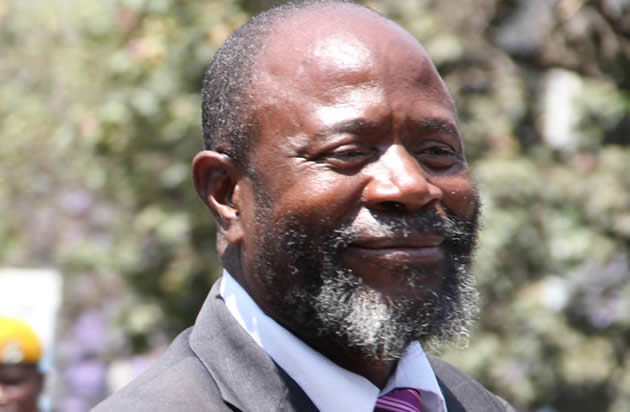Guns blaze in China’s defence
Perspective Stephen Mpofu
GUNS blazed this week against Africa’s European colonisers and neo-colonial sections of the world press in defence of the new role that China is playing in reconstructing and revamping the economies of a free and independent Africa. The United Nations’ former long-serving political servant, James Jonah, came out firing salvo after salvo at Europe for under developing and impoverishing Africa in the hey-days of colonisation. This was against media claims that China was colonising Africa — with President Mugabe also firing his shots at both the former exploiters of Africa’s rich resources and at mass media seeking to discredit China by claiming that the Asian economic giant was a follow-up coloniser after Europe.
In an interview with the Voice Of America Radio, Jonah, a native of Sierra Leone who served the UN for three decades, retiring in 1992 as Under-Secretary for Political Affairs, lauded China’s intervention in Africa after the plunder of the continent’s riches by colonial Europe, saying the $60 billion aid China is giving to Africa will be a milestone in the advancement of the continent’s economies.
Speaking from Johannesburg when attending the China Africa Cooperation Summit, President Mugabe, who had just hosted China’s President XI Jingping during a two-day visit to Zimbabwe, said the billions in development aid from China would transform African economies from being exporters of raw materials to producers of higher value processed products, thereby bringing to an end a long-standing colonial legacy, which is that long after achieving political independence African countries, through mostly European or white-owned companies, continue to exploit Africa’s rich raw materials and shipping these oversees for processing and value addition with the added value never seeing its way back to the sources of the raw materials.
What is even worse is that by exporting the raw materials African countries also unwittingly or helplessly export jobs that their people badly need for better lives.
Zimbabwe and other Sadc countries are right now working to reverse the bromide of exporting raw materials by creating secondary industries locally to process the materials into finished products for export with value added to them to benefit the countries, with more jobs created at home in the process through industrialisation.
In retrospect, this pen dares say if Europe’s colonising of African countries had been like the Chinese they would have been celebrated and would have remained as friends of Africa ad infitum.
But they were not China. For on top of being economic exploiters and, to a large extent, racist oppressors of blacks, for some of them were blatant crooks, as the story of the partitioning of Africa by the colonisers at the Berlin Conference in 1884 shows.
The book, Dynamics of History by S Mukanya, explains that the purpose of the Berlin Conference was to agree principles according to which Africa was to be divided among the colonial powers.
For instance, one of the major guiding principles was that intending colonial powers must sign treaties with African rulers and must produce evidence to the others that it (colonial power) had the legal right to occupy the area, according to the dynamics of history.
And here come the stunner: “the majority of the documents were forgeries that meant nothing to African rulers because the … rulers were illiterate… and were persuaded to put an X on the document and this was treated as the signature”.
What the document was about was never really explained to the Africans.
Now contrast this with documents signed between Chinese companies and their African counterparts and no case of fraud has come up because the Chinese are guided by their country’s culture of honest genuine practice and desire truly to help struggling African countries transcend poverty induced by decades of colonisation by a Europe that brazenly boasted about ownership of African countries.
Take, for instance, the Congo region which was recognised as “belonging to Leopold II of Belgium” who then sought an international guarantee for that region.
Closer to home, this country as Rhodesia was regarded by the colonial power, Great Britain, as its possession as was the case with other countries colonised by Britain. Portugal and other European powers were also regarding their colonies as their own possessions – and one was free to do or not do anything about one’s so-called possessions.
Thus, trails of under-developed countries and crushing poverty in some of them speak volumes about the records of powers that once occupied Africa, in some cases by force of arms.
Yet no one is known to have heard of a country in post modernity that regards itself, or is touted by China as its colony or possession in Africa.
For all that Zimbabweans know and can vouch to the none African world is that China — the world’s second most advanced economy after the United States of America – boasts a revolutionary people who are now simply crossing the bridges they helped build during the armed struggle for independence in Africa to underpin the revolution on the continent with economic growth and with that political stability and social advancement.
President Mugabe cited China’s positive role in Zimbabwe, for instance by stating that Chinese companies are investing in productive sectors and financial institutions as a way to lead the country into a brave new future.
Above all, China cherishes not only along with Zimbabwe but also with other African countries the principles enshrined in the Charter of the United Nations which include those of the equality of nations and their right of self-determination.
China can therefore be said with equanimity to be playing a Good Samaritan role of sorts with, of course, handsome dividends accruing to that country’s companies from their investments in Africa.










Comments